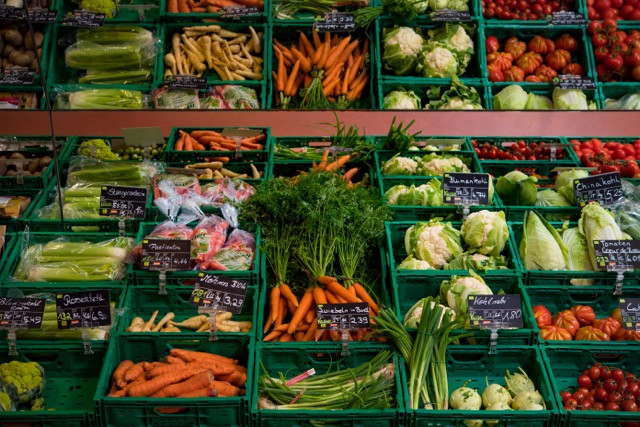Duncan Roberts: As part of the Oikopolis group, do you think Naturata has had an advantage in terms of working with suppliers during the coronavirus crisis?
Sigmund Walbaum: As a part of the Oikopolis Group Naturata has the advantage and opportunity to have an overview of the whole supply chain. From farm to shelf we permanently exchange information and work closely on solutions in order to solve actual problems and coordinate with one another. In addition to that, our employees are always well informed about the situation of our suppliers and partners and they are able to share their knowledge with our customers.
Have you seen an increase in customers at your stores and also ordering online? And do you think there is any particular reason for this? Have you had to adjust prices to reflect the situation? I see you also added news in English on your website – what was the reason for this?
Yes, we saw an inconceivable increase of customer visits during the first days of the crisis. And even though it came to some sort of balance, the number of customers still remains on a remarkable level. One explanation for this phenomenon could be the clarity of our shops. Another one could be the rush of people in other stores. Because of our relatively autonomous structure, the independence of our suppliers--and their loyalty--we were able to prevent price increases. For online orders we cooperate with letzshop.lu.
The addition of the English language on our website is part of the renewal in consideration of our multilingual clientele.
You chose to close your stores for an hour at lunchtime. What other measures did you take to protect staff and how did they react to being asked to work on the front line during this health crisis?
Very soon after entering the crisis we undertook a number of safety measures like guidance systems for customers, advice on how to behave, Plexiglas cabins for the cash desks and the counters. Luckily the majority of our employees recognised the necessity of grocery stores in general and especially of Naturata in these times. We are constantly in contact with each other, but of course there is a lot of concern.
We close our shops for one hour at lunchtime to the have time and space to clean it up, to refill the shelves and to recover from the exertion in order to maintain the service.
What do you think of the Luxembourg government’s response to the economic crisis?
The Luxembourg governmen's response was as appropriate as possible. Some decisions could have been taken earlier, but all in all the response was powerful and successful. All the companies of the Oikopolis Group are relevant to upholding the system, so all of us were glad to be able to keep on working and to be useful for society. Many others are in much more serious condition concerning their career advancements or business performances.
How do you think the retail business will emerge from the crisis? Will food retailers have to rethink their approach to supply lines and how they treat customers?
It is going to be a huge challenge to reopen the retail business, regardless of the government’s catalogue of measures. I think there is a necessity to rethink and reorganise the current global business model.
In fact, the grocery business has to consider its external effects on the environment and its social responsibility, as well as to serve the changing demands of customers concerning transparency, fairness and accountability within the supply chain. Customers will use their increasing awareness to select their way of shopping.
We saw the incredible sight of huge queues at McDonalds when they reopened their drive through last week. Do you think people will revert to their old habits regarding food quality and safety, or can the crisis serve as a lesson that we should appreciate organic food and local producers more?
Some will, and some will not. But as a result of the correlation of the covid-19-crisis with, still unsolved, climate change problems, a growing amount of people will search for new behaviour patterns and new places to shop.
